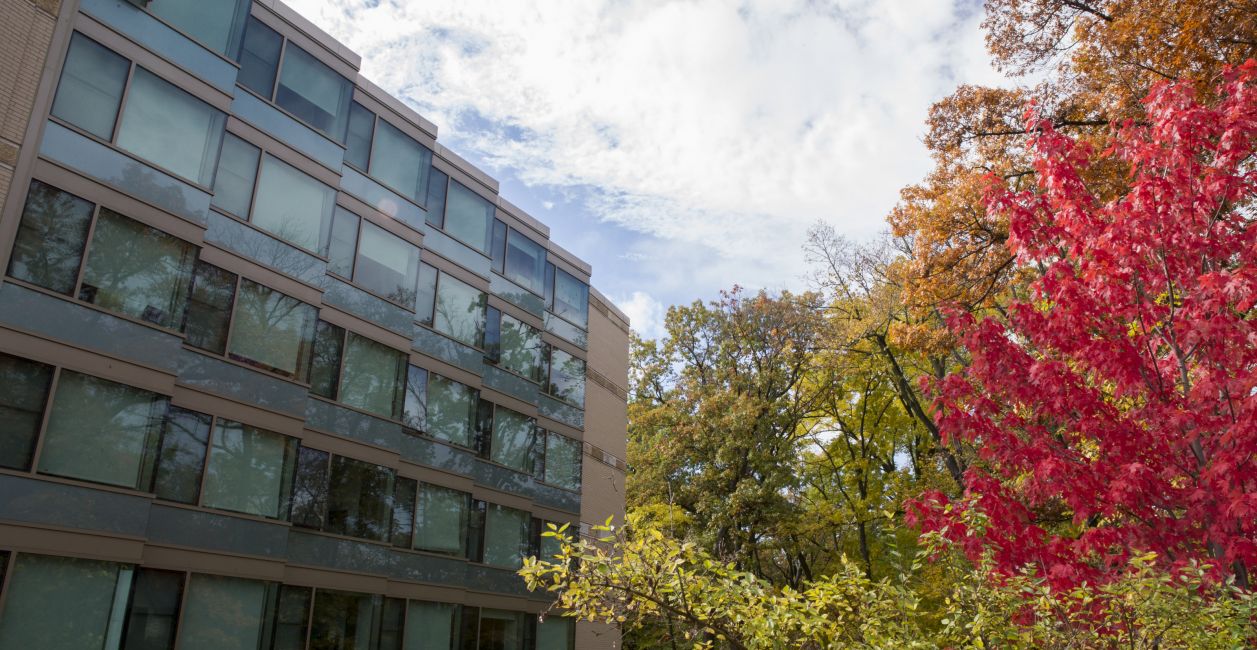
The Art of Destruction: Demolition derbies recharge professor’s creative battery
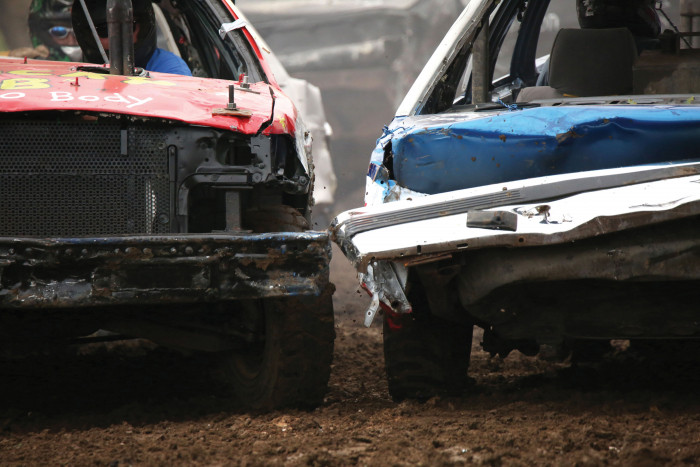
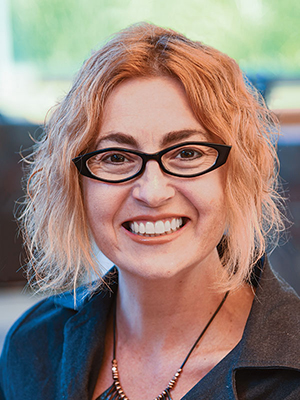
The filmmaker, visual artist, and writer had recently finished work on two highly successful documentaries, as the U.S.-based cinematographer for the PBS/Independent Lens film “In the Shadow of Ebola” and an associate producer (with additional cinematography) for “The Land Beneath Our Feet,” a film about Liberian land rights. Once those concluded, she had nothing else lined up.
Her artistic practice has always focused on the journey rather than a particular outcome. So Prof. Van Winkle ventured out one day, armed only with her camera and the intention to experience something new.
She happened upon a demolition derby, and it delivered. It became the basis for her award-winning multimedia work, “The Destruction Project.”
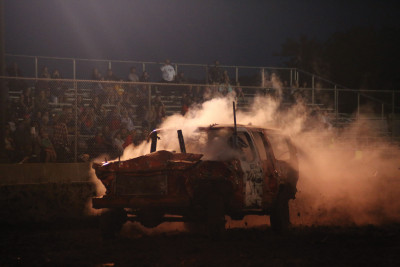
She quickly became enthralled with the derby spectacle, calling it “fun, absurd, dangerous, and comical” all at once. The intense culture reminded her of artists and their work.
“These people feel an obsession, a need to participate,” says Prof. Van Winkle, who grew up in rural Indiana. “They spend so much time and energy building up their cars that may just end up destroyed in 30 seconds. All they can do is have faith in their work.”
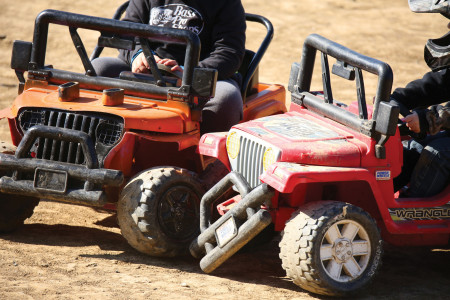
Since its debut at the Madison Museum of Contemporary Art in October 2020, “The Destruction Project” has been accepted to film festivals in Los Angeles, Tokyo, Rome, and elsewhere. Both the 15-minute experimental film and the associated still photos have earned international recognition.
Emerging programs
Wedding photographer. Finger painting teacher to toddlers. Public art creator. None of those previous gigs influenced Prof. Van Winkle’s creative practice as much as her work at the College has.
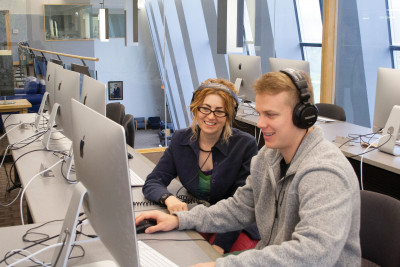
In 2018, only a few weeks after joining the faculty, she spearheaded a proposal to add minors in photography as well as film and new media. Offered since fall 2020, the two minors are “meant to provide lots of choices,” says Prof. Van Winkle, who directs the combined program.
Courses go beyond the traditional broad strokes. For example, photography minors can now take courses on both darkroom and digital photography, as well as a related history course.
Film and new media minors can gain exposure to virtual and augmented reality and 3D printing. Through a partnership with the Computer Science Department, students in the program can even learn coding.
Prof. Van Winkle supplements courses with a robust schedule of hands-on programs, like the workshop she secured with photography giant Canon last year. Representatives arrived with more than $100,000 worth of equipment in tow so students could experiment with optics and try out the newest camera with stereoscopic imagery capacity.
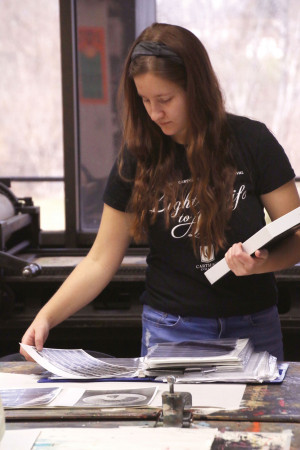
Intent on providing an inclusive educational environment, Prof. Van Winkle serves on the College’s Equity and Inclusion Committee. She’s also an ARISE equity coach, leading freshmen on a two-semester personal and relational journey known as the Anti-Racism and Intercultural Seminar Experience.
Corinne Ness, dean of the Division of Arts and Humanities, calls Prof. Van Winkle a “grower” of students.
“Jojin sees their strengths and looks for opportunities to explore and bolster them,” says Prof. Ness. “She always looks for ways to engage students in creative projects that elevate the Carthage experience while also elevating student learning.”
Artistic growth
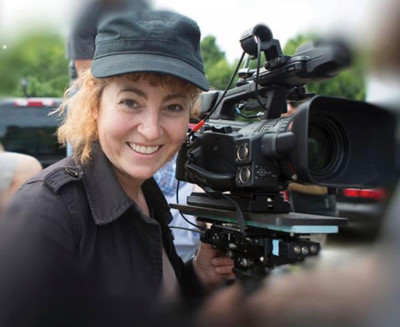
She’s completed in-person artist residencies in places like Pittsburgh; Charleston, South Carolina; Eugene, Oregon; and Haukijärvi, Finland. Artist residencies provide space and time for artists to create and connect globally with other makers. Because of the COVID-19 pandemic, her more recent residencies have taken place virtually.
Artistically, Prof. Van Winkle continues to branch out. Her first screenplay, “Tanked,” won top awards in Iceland and Texas and made the semifinals in the London-based Frances Bell Film Screenwriting Competition — one of 20 scripts to be chosen from 1,200 submissions.
This summer, Prof. Van Winkle is conducting research at Earthship Biotecture Academy, which focuses on self-reliant housing and sustainable living in the arid landscape of Taos, New Mexico. She hopes this experience will inform her ongoing creative practice, extending its hands-on building and mindful principles into her life and teaching.

The RAM fellowship will focus on resilience, a theme that naturally follows destruction. Prof. Van Winkle recently received her maternal grandmother’s 1950s stereoscopic film camera, and she plans to use special lenses like that to capture images of resilient landscapes and dreamscapes.
“Growing up on a farm in Missouri, my grandmother had an eighth-grade education. She didn’t have the opportunity to go to college, but she was an avid lifelong learner with a keen eye for photographing clouds with her Brownie camera,” says the professor. “I didn’t know she also used a stereoscopic camera until very recently.”
In contrast to the wreckage depicted in her portfolio, Prof. Van Winkle’s teaching is unfailingly constructive.
She aims to provide students with the tools and the experiences to “follow their noses,” pursuing whatever excites them and connects them to their interests and communities. Just like she has.
“I’ve found that art has a lot to do with listening — to others, but even more to yourself.”
